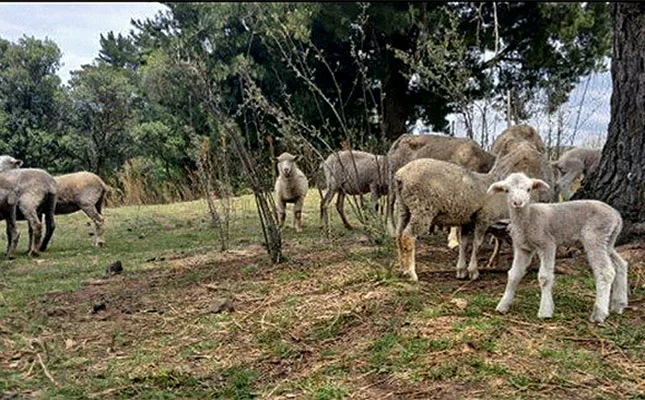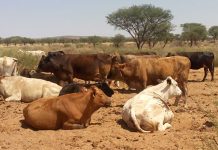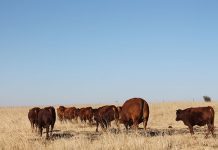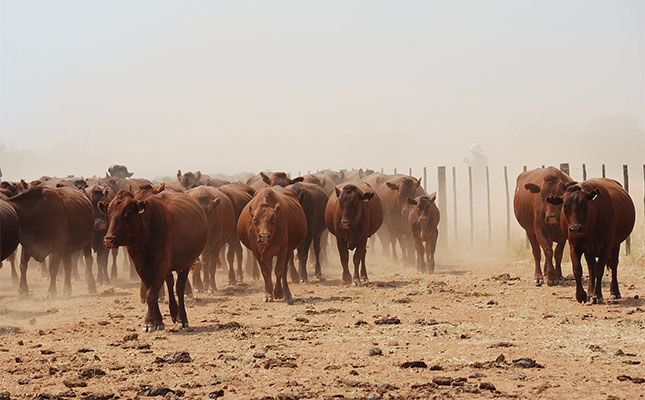
Bester-Cloete advised farmers not to let their animals sleep near water and in low-lying areas, which are breeding grounds for mosquitoes, as these insects often spread the virus from sick animals to healthy ones.
“Farmers must always ensure they consult their veterinarians to diagnose their animals as soon as possible or before the conditions worsen. Vaccination is the best way to fight against bluetongue, which could lead to financial loss,” she told Farmer’s Weekly.
Virus symptoms
Bester-Cloete said the first sign of bluetongue infection was a fever of 40°C or higher.
“This causes small capillary blood vessels to leak, also causing pulmonary oedema [moisture on the lungs], [nasal discharge], and swelling of the tongue, face, and neck,” she explained.
Furthermore, calves could also be born deformed with swollen tongues if their mothers had mild symptoms in the early stages of pregnancy.
However, she said there were two vaccines available in South Africa that could play a significant role in fighting the spread of the virus.
The live vaccination comprises three doses, each one given three weeks apart. Bester-Cloete stressed that in-lamb ewes must not be vaccinated, as this could cause birth defects in their offspring.
Bester-Cloete said Biologix can also be used, comprising two vaccinations administered four weeks apart. “This vaccination can be administered during pregnancy and to lambs from seven days of age,” she added.
No threat to humans
Dr Peter Evans, a veterinarian for Red Meat Industry Services, said that bluetongue affected ruminants such as sheep, goats, and cattle but did not spread to humans, adding that consuming the meat of an infected animal posed no threat to people, as the virus was destroyed in the cooking process.
However, the only concern was if the animal was in poor condition before being slaughtered, as the meat quality might not be good, he said.
Evans added that the virus could not spread or multiply outside a living host.
“It needs an animal’s cells to multiply. The bluetongue virus spreads through the bite of a tiny midge [a small flying insect], not from one animal directly to another or through meat.
“When a midge bites an infected animal and then bites another one, it passes the virus along. So, the virus doesn’t just ‘grow’ on its own; it needs both the insect and the animal to continue spreading,” he explained.
Evans said that while farmers should not panic, they needed to act promptly. He urged them to do the following:
- Vaccinate and manage livestock properly, including keeping them away from wet areas where midges breed;
- Contact a veterinarian for diagnosis and treatment advice when animals fall ill, as supportive care could aid their recovery; and
- Report outbreaks so local veterinary services could help monitor and control the spread of the disease.
He added that the disease could be managed effectively and that most animals recovered.
Evidence Molefe, a commercial livestock farmer from the Thabo Mofutsanyana District Municipality in the eastern Free State, said she hadn’t heard of bluetongue until she lost four sheep to the virus last year.
She thanked the men and women from the local farming community who responded quickly after she sought their advice about what was happening on her farm.
“I was shocked to learn how many were coming to help me fight bluetongue without demanding a cent from me.
“I’ve learnt that [farmers] need to help each other whenever possible. I lost four sheep, but if it hadn’t been for their quick response, I would have lost more,” she concluded.
Get trusted farming news from Farmers Weekly in Google Top Stories.
➕ Add Farmers Weekly to Google ✔ Takes 10 seconds · ✔ Remove anytime






